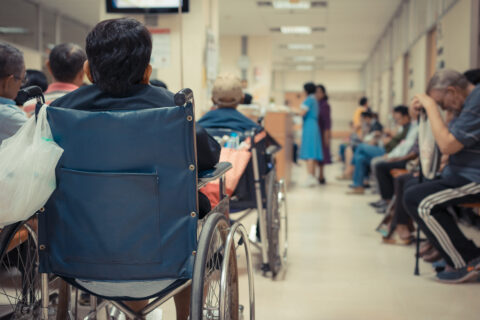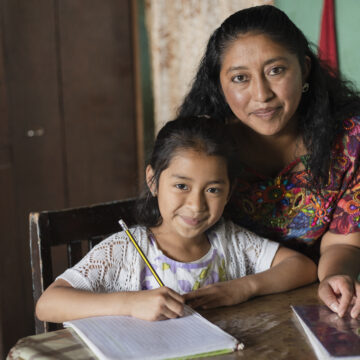Ibero-American countries work to promote mental health through SSC
October 10th is World Mental Health Day, a date set to commemorate an issue of international relevance that is receiving increasing attention.
According to the Pan-American Health Organization (PAHO), depression, anxiety, and pain disorders are the three most common mental health-related illnesses in Latin-America and the Caribbean (Duarte, N. 2023). Although discussing this topic is still considered a taboo, a worldwide awareness of the need to address it more effectively is apparently growing (among governments, civil society, academia, etc.), especially after the COVID-19 pandemic, which had a particularly severe impact on young people and children.
Last year, for example, Ipsos Global conducted an online survey of 23,507 adults from 34 countries —six of which were in Latin-America—, and found the following percentages of people who consider mental health to be a major health problem: Chile (62%), Brazil (49%), Colombia (46%), Peru (39%), Argentina (37%), and Mexico (15%) (Melo, M. 2023). When considered in the framework of South-South and Triangular Cooperation, and the institutional strengthening to which these modalities are contributing, these figures prove that the region is indeed developing initiatives that promote improved capacity in health services to address these challenges.
Two initiatives stand out in terms of Bilateral SSC: one promoted by Chile and Uruguay (together in the role “both”) and another carried out by the Dominican Republic and Peru (recipient and provider, respectively). The former focuses on knowledge generation on adolescence and youth —considering the psychosocial well-being of these populations—, through instruments such as surveys to design indicators to measure symptoms of anxiety, stress, and depression (AGCID, 2025). The latter is based on the experience of the National Institute of Mental Health of Peru in training psychiatrists in mental health and community psychiatry, which was shared with the Dominican hospital Dr. Francisco E. Moscoso Cuello.
Work has also been carried out in this field through triangular partnerships. Two projects launched in 2024 are examples of these efforts: firstly, Spain (second provider), Cuba (first provider), and Mexico (recipient) are working to facilitate the access of vulnerable populations in Baja California to specialized care for the assessment and diagnosis of neurobiological, cognitive, and emotional disorders. Secondly, Guatemala and Honduras (recipients) are strengthening their mental health services based on Uruguay’s and Spain’s experience (first and second providers, respectively) in the framework of the ECHO Model, recognized for using administrative data and medical record analysis to study the quality of and the access to health services at the international and national levels.
Finally, in terms of Regional SSC, the Three-Year Plan of the 2023-2025 Mesoamerican Public Health System (SMSP by its Spanish acronym) also stands out as a guiding instrument for actions and activities based on four priorities defined by member countries: mental health, disability, chronic noncommunicable diseases, and community leadership. One of the outcomes of this program has been the creation of regional public goods in mental health, road safety, health regulation, and malaria elimination. Specifically, for example, El Salvador and Belize have already been certified by the World Health Organization (WHO) as malaria-free territories (SICA, 2025).
October 2025
***
Source: SEGIB based on Agencies and Directorates-General for Cooperation, AGCID (2025), Duarte, N. (2023), Melo, M. (2023) and SICA (2025).
Photo: Freepik

